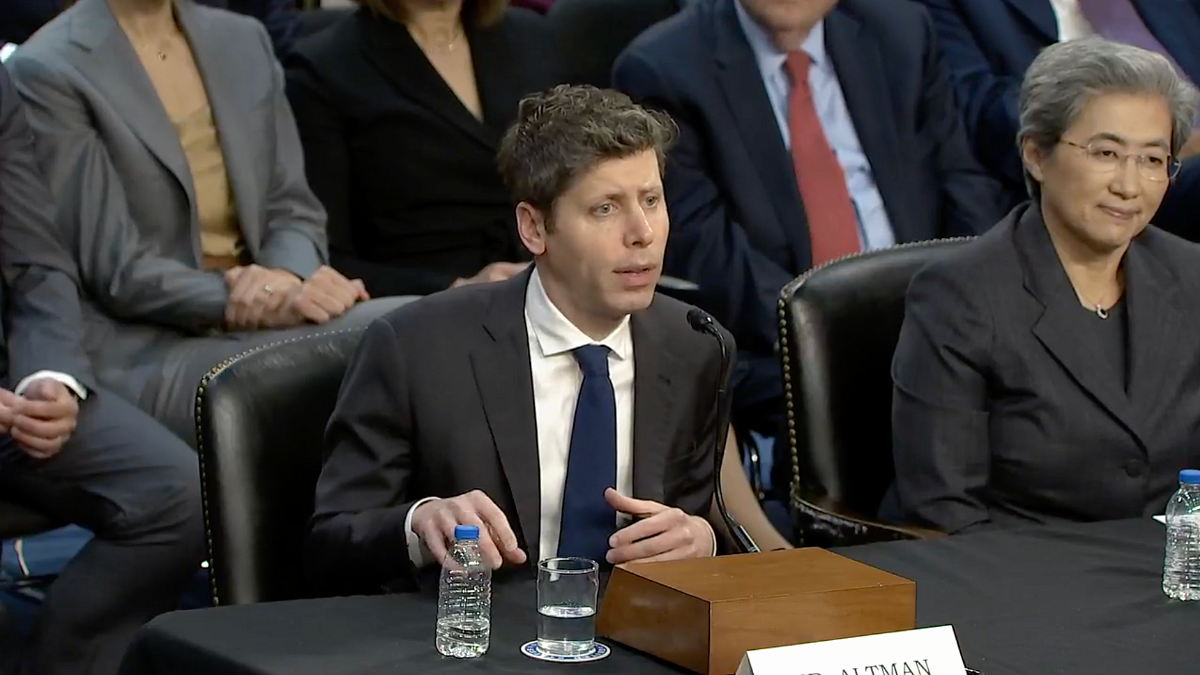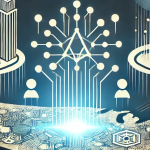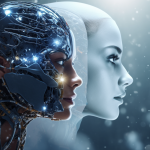Introduction
Artificial intelligence is no longer confined to laboratories or tech firms—it has become a fundamental force reshaping global politics, media, and culture. What began as a tool for automation is now a mechanism of control and persuasion, influencing everything from election campaigns to entertainment trends. At the same time, celebrities and public figures have become key players in this digital arena, using their platforms to engage with global issues in real time.
This convergence of AI, fame, and politics signals the dawn of a new power structure—one governed not just by policy or wealth, but by data and visibility. The algorithm has become a silent policymaker, amplifying some voices while silencing others, reshaping how influence and authority function in the modern world.
The Political Power of Artificial Intelligence
Governments across the globe have turned to AI to predict crises, manage infrastructure, and guide economic decisions. Algorithms now help shape political discourse, determine voter targeting strategies, and analyze public sentiment. This reliance on data has increased efficiency but also sparked fears of manipulation and loss of privacy.
In democratic nations, AI tools are used to enhance transparency and participation. However, in authoritarian regimes, they can become instruments of surveillance and control. The technology’s dual nature makes it both a tool for empowerment and a potential weapon against freedom, depending on how it is governed.
Celebrities and the Digital Influence Economy
In today’s interconnected world, celebrities have evolved into digital power brokers. Their social media platforms function as international news outlets, shaping discussions on topics such as sustainability, equality, and technology ethics. Figures like Elon Musk, Beyoncé, and Greta Thunberg exemplify how fame, activism, and innovation intertwine.
Through partnerships with tech companies and advocacy organizations, these public figures bring global attention to complex issues. When a celebrity endorses a sustainability initiative or criticizes AI misuse, the ripple effect can shift consumer behavior and even influence policy debates, proving that soft power has become a major force in global governance.
The Global Race for Digital Dominance
Nations are competing fiercely to lead the world in AI development. The United States, China, and the European Union view artificial intelligence as both an economic asset and a matter of national security. Control over AI infrastructure—such as data centers, chip manufacturing, and software ecosystems—now determines global influence.
This technological rivalry is shaping international alliances and trade policies. Countries unable to keep pace risk becoming digitally dependent on more advanced powers. As a result, innovation has become synonymous with sovereignty, and digital literacy with national survival.
AI and the Media Manipulation Dilemma
Artificial intelligence has revolutionized media production, making it easier than ever to create and distribute content. But with that innovation comes manipulation. Deepfake videos, algorithmic bias, and data-driven misinformation are redefining how truth is perceived in the digital age.
This crisis of credibility has political consequences. Elections, international relations, and public trust are all vulnerable to AI-generated deception. As a response, both tech firms and governments are racing to develop verification systems to restore integrity in the information landscape.
The Rise of Cultural Technology and Entertainment Ethics
The entertainment industry is experiencing its own AI revolution. Music, film, and art are increasingly being created with the help of algorithms capable of generating human-like creativity. Virtual influencers and AI-generated celebrities now attract millions of followers, challenging the concept of authenticity in entertainment.
While some see this as progress, others view it as a threat to human artistry. The debate over originality and ownership in digital creativity continues to intensify, pushing artists, studios, and lawmakers to rethink what it means to create in the algorithmic age.
The Intersection of Fame and Policy
Celebrities are increasingly stepping into policy discussions once reserved for diplomats. When stars speak out about artificial intelligence, climate change, or social justice, they influence the same audiences that politicians seek to reach. Their ability to merge emotion with global messaging makes them indispensable in modern advocacy.
At times, their involvement sparks controversy, but it also brings urgency and visibility to complex topics. By connecting public emotion with policy debate, celebrity activism ensures that global conversations remain human-centered even as technology dominates communication.
FAQs
How is AI transforming global politics?
AI assists leaders in analyzing data, predicting crises, and managing public resources, but it also raises ethical and privacy concerns.
Why are celebrities central to digital influence?
They use their platforms to engage millions, shaping discussions on issues like sustainability, ethics, and global justice.
Can AI-generated media affect democracy?
Yes, deepfakes and misinformation campaigns can manipulate voters and undermine trust in institutions.
What role do nations play in AI regulation?
Governments are creating frameworks to ensure that AI development aligns with human rights and democratic principles.
Is AI in entertainment replacing human creativity?
Not entirely—it enhances creativity but also challenges traditional artistic and ethical boundaries in storytelling and music.
Conclusion
The merging of artificial intelligence, celebrity culture, and political ambition has created an era where influence is measured by data and digital reach. Power is no longer confined to parliaments or studios—it now lives in algorithms, platforms, and public consciousness.
As humanity stands at the crossroads of innovation and identity, the challenge is to ensure that technology amplifies truth rather than distorting it. The next chapter of global power will not be written by machines or leaders alone, but by how responsibly both choose to shape the world they now share.





